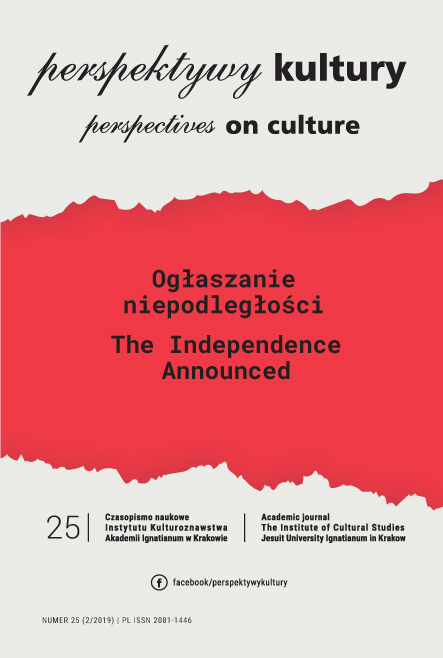Polish Literature in Albanian
Abstract
Albania is a small country in Europe, which was under Turkish occupation for nearly five centuries. It did not regain its independence until 28 November 1912. During the occupation there was almost no foreign literature translated into Albanian, as more than 85% of the population were illiterate and in general there were no scientific institutions or schools. The first primary school was opened in 1887. Only in the 1920s, with the emergence of intelligentsia, world literature started to be translated into Albanian, which included Polish literature. However, the translations were not done from the Polish language but from Italian translations of it. The first Polish literary work translated into Albanian from Italian was the Nobel prize winner Henryk Sienkiewicz’s novel, Quo Vadis? (in 1933). The book was translated for the second time in 1999. The translation of Polish literature into Albanian gained momentum after World War II, and especially after 2000. So far, nearly 55 books by 34 Polish authors have been translated into Albanian, including Adam Mickiewicz (among them his great work, Pan Tadeusz), Henryk Sienkiewicz, Boleslaw Prus, Czesław Miłosz, Wisława Szymborska, Olga Tokarczuk, Ryszard Kapuściński, Tadeusz Różewicz, Witold Gombrowicz, Fr. Marcin Czermiński, and others. At the same time, 8 Albanian authors wrote books on Polish topics in Albanian. Apart from the Albanian translators from Albania, Polish literature has also been translated into Albanian by Albanians from Kosovo. In comparison with other European countries, Albania is a leader as far as the number of Polish books translated is concerned. Polish literature in Albanian is generally popular among Albanian readers. Some of the books are published for the second, or even after the third time.
References
Almanac: Polish literature in Albanian prepared by the Polish Embassy in Ti¬rana in 2013.
Almanac: Polish literature in Albanian – Overview of new works and opinions, translated for 2014-2016; prepared by the Polish Embassy in Tirana in 2016.
The Europa magazine, Iss. 4/2024 and Iss. 16/2017, issued by the Institute of International Studies in Tirana.
Astrit Beqiraj: Polish literature over the years.
Copyright (c) 2019 Jesuit University Ignatianum in Krakow

This work is licensed under a Creative Commons Attribution-NoDerivatives 4.0 International License.
Autor, zgłaszając swój artykuł, wyraża zgodę na korzystanie przez Wydawnictwo Uniwersystet Ignatianum z utworu na następujących polach eksploatacji:
- utrwalania utworu w formie papierowej, a także na nośniku cyfrowym lub magnetycznym;
- zwielokrotnienia utworu dowolną techniką, bez ograniczenia ilości wydań i liczby egzemplarzy;
- rozpowszechniania utworu i jego zwielokrotnionych egzemplarzy na jakimkolwiek nośniku, w tym wprowadzenia do obrotu, sprzedaży, użyczenia, najmu;
- wprowadzenia utworu do pamięci komputera;
- rozpowszechniania utworu w sieciach informatycznych, w tym w sieci Internet;
- publicznego wykonania, wystawienia, wyświetlenia, odtworzenia oraz nadawania i reemitowania, a także publicznego udostępniania utworu w taki sposób, aby każdy mógł mieć do niego dostęp w miejscu i czasie przez siebie wybranym.
Wydawca zobowiązuje się szanować osobiste prawa autorskie do utworu.





